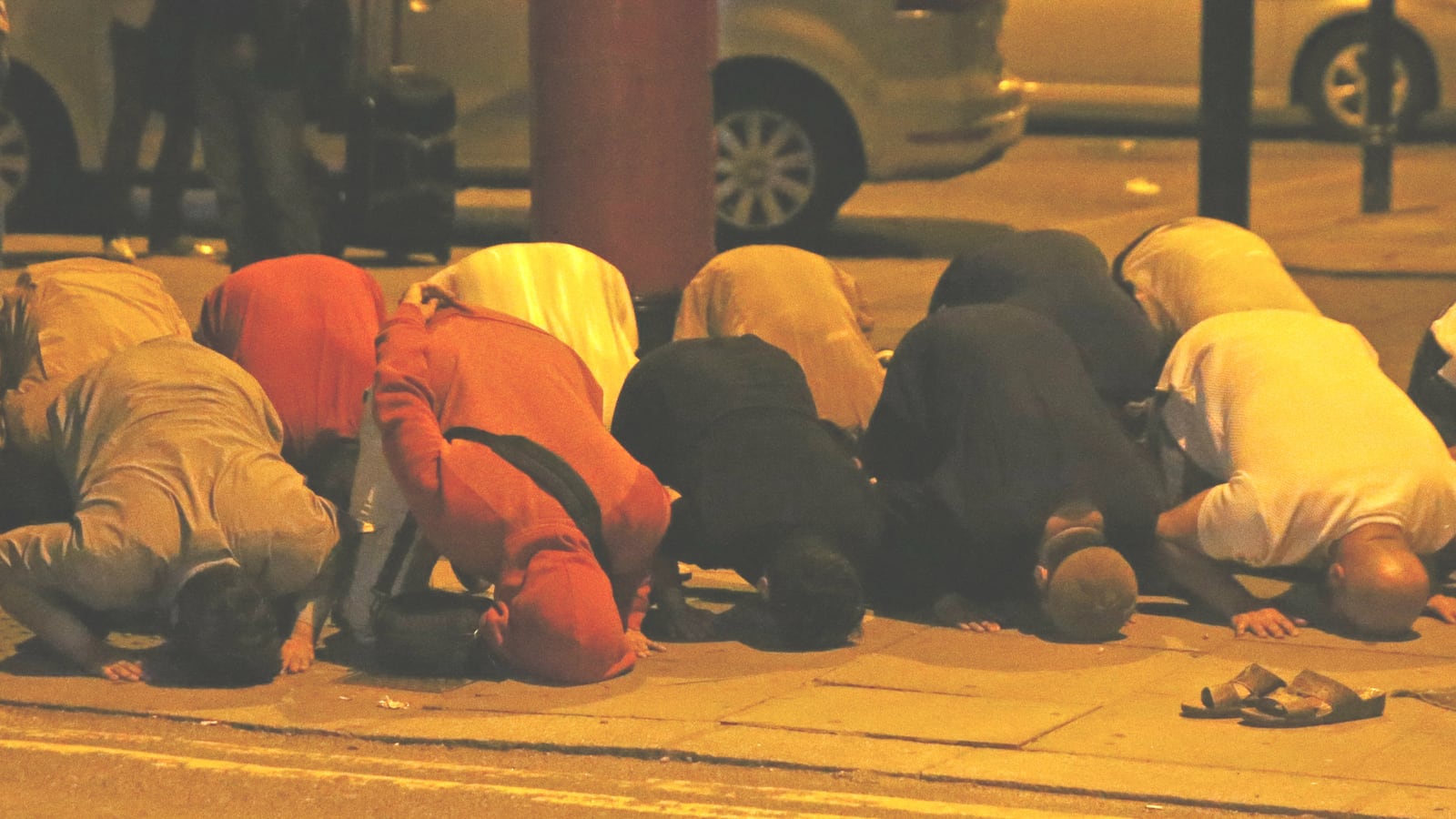LONDON—As this city recovers from a series of tragic events, another terror attack hit its streets early Monday morning. Suspected anti-Muslim extremist Darren Osborne, from Weston-super-Mare, grew up in North Somerset and was living in Cardiff, Wales. Mimicking ISIS methods, his sickening van attack took place outside the Muslim Welfare House as worshippers were leaving the area after evening prayers.
Eyewitnesses have recounted the attacker’s alarming shouts of “I want to kill all Muslims” as he plowed a van through pedestrians, saying “I’ve done my bit.” It is clear that this individual’s actions were a manifestation of the anti-Muslim hatred that has been brewing in the West for quite some time.
All brands of contemporary extremism in the West—Islamism, ethno-nationalism, and the regressive left—have their respective violent offshoots that use similar rhetoric to justify themselves and vilify others.
Jihadis are by now the better known. But Darren Osborne may now join the ranks of Norwegian terrorist Anders Breivik; Tommy Mair, who murdered MP Jo Cox; the terrorist who attacked a mosque in Canada, Alexandre Bissonnette; and a long line of other ethno-nationalist terrorists fast emerging in the West.
Meanwhile, America is still reacting to the shock of since-disavowed Bernie Sanders supporter James T. Hodgkinson from the regressive left, who attempted to assassinate Republican congressmen at a baseball practice.
The recent ISIS-inspired terror attacks that have taken place in Manchester and then London have been anything but random. They are very deliberate military tactics devised and carried out with the intention to divide and polarize our societies, pitching Muslims against non-Muslims. ISIS has told us as much themselves.
Once this division begins to creep in, people tend to take refuge in extreme positions and start to espouse more fanatical views. Only the extremists on both sides gain from this downward spiral aimed at provoking civil war. Civil war is precisely what these terrorists hope to achieve.
These three strands of extremism all despise and target the centrists who criticize them, sometimes more than they target each other. This is why arguing over action and reaction, who started it all, and whose anger is more justified, is as good as arguing over which came first, the chicken or the egg, although far more counterproductive.
When Islamists argue foreign policy is a grievance, the political right dismiss this and wish instead to focus on Islamist ideology. When anti-Muslim extremists focus on Muslim terrorism as a grievance, Muslims and many on the left dismiss this and wish instead to focus on ethno-nationalist ideology.
But we cannot have it with ways. Ideology is behind extremism. I would argue that ideology plays a role in all cases, and must be named, shamed, and defeated.
At this moment in time, the most organized and dangerous of these threats may be the Islamist ideology—but that assessment is not fixed in stone as Monday’s anti-Muslim attack attack indicates. Let us not forget that Europe witnessed an anti-Muslim genocide in Bosnia in its not too distant past.
Anti-Muslim bigots and Islamists are often viewed as groups on opposite ends of a line, when in fact they are but two sides of the same coin. Yes, jihadist terrorism poses a far larger global threat, but according to the U.K. government, anti-Muslim extremism has been the fastest rising of late.
Muslim-phobes and Islamists have much in common: Both groups insist that Islam is a totalitarian political ideology at odds with liberal democracy, and that it is here to dominate. Both also insist that the two will inevitably clash. As a result, while one group often calls for Islam to be banned, the other calls to ban everything but Islam. Together, they form the negative and the positive of a bomb fuse.
Anti-Muslim extremism and Islamist extremists—with their regressive left apologists—exist in a kind of twisted symbiotic relationship whereby each props up the other, and both together create the optimal breeding ground for their respective ideologies to not only persist, but thrive. The desire to impose Islam and the desire to ban Islam are simply twin ideologies that, if left unchecked and unchallenged, have the potential ingredients to cause havoc.
We cannot allow the vicious cycle of hate to continue. We cannot and must not allow either side to dictate how we view the world, and polarize our societies, or indeed muzzle intellectual debate about the role of religion and its need for reform in today’s complicated world.
The regressive left often label any critic of Islam as a racist, Islamists often label all non-Muslims as the enemy, and anti-Muslim bigots target all Muslims as the enemy. It is up to us in civil society to be rational enough to see the absurdity of such black-and-white worldviews.
Any attack on non-combatants to further ideological aims is terrorism, and any act of terrorism is an infringement on the liberal values that are embedded in the very foundations of our social contract. Civil society must stand up to extremism in all its forms, whether it comes as intolerance or violence.
Just as we rightly ask Muslims to do more to tackle Islamism in their communities, so must we call upon the populist right to address the rising anti-Muslim extremism in their ranks, and the left to rein in regressive elements among theirs.
And in this light, credit goes to the restraint of the mosque imam in this latest attack who prevented an understandably angry crowd from lynching the suspected anti-Muslim terrorist, and insisted on calling the police instead. We must all stand together in solidarity against all forms of extremism, violent or not, wherever it comes from.





